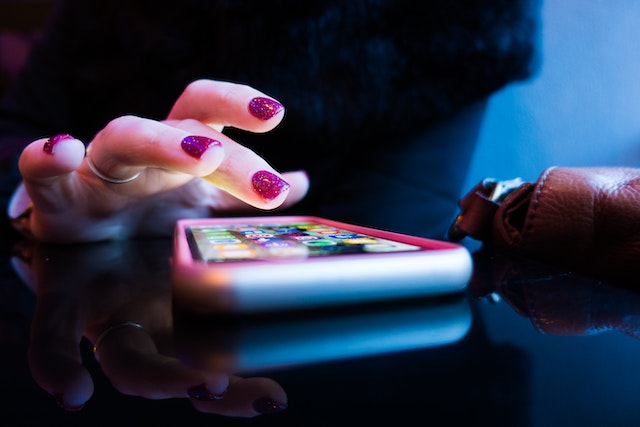At whatever level you exercise, problems can arise and homeopathy has some answers, writes Dr Fiona Dry
Prior to studying homeopathy, my free time was spent as an ice hockey team doctor. Indeed, it was my quest for treatments of the coughs and colds, which could decimate our team in the winter, that led me to look at homeopathy seriously as a useful tool to add to my treatment choices.
Today some top athletes have used homeopathy successfully and interest among both athletes and the support teams that care for them, appears to be increasing. However for most people sport is recreational and the need is for simple remedies to treat the most common injuries. I usually recommend keeping four remedies in the sports bag so that they can be easily accessed at any time – whether in the gym, on court or on the rugby field.
First aid remedies
Recommended for any physical trauma, Arnica is probably the best-known homeopathic remedy – and for this reason it is often used inappropriately. When using most other remedies we look for a pattern of symptoms to match the illness – this shouldn’t be forgotten when using remedies in a “first aid” situation. Arnica can be used when the injury is in the initial stages and is likely to be superficial – sprains, knocks, falls or when bruising is easily visible, but will be more useful when some of the other features are present such as wanting to be left alone or not able to bear someone touching the area. By all means use Arnica 30c every 15 minutes for up to two hours if it seems to be helping, then reassess to check whether another remedy is needed.
For bruising that is likely to be deep as in a direct blow to the quads in rugby or any other contact sport then my choice would be Bellis perennis 30c rather than Arnica. With an injury needing Bellis perennis there is often a feeling of “tightness” and bruising may not be particularly apparent initially. It can also be helpful for tears to the quads where there is a lot of bleeding into the muscle itself. Again use it every 15 minutes for the first two hours then reduce the frequency to a dose three to four times daily, gradually tailing off the remedy as symptoms improve.
My third choice is Ledum 30c as it is so useful in treating sprained ankles. Switch to using Ledum, from Arnica if the ankle looks black with bruising and has the sensation of being cold, yet putting heat on it worsens the pain which is actually relieved by applying ice. Ledum is often needed for a couple of days so start taking a dose every 30 minutes for up to six doses and then reduce to three or four times daily as you improve. It is also particularly useful for black eyes so if you play contact sport this is good to have in your bag.
The last remedy is Rhus tox again as a 30c potency. Use it when you start to move and feel “seized up”. Even if you haven’t been injured but have simply had a hard session and feel stiff two or three doses of Rhus tox over one to two hours, alternating with Arnica can sometimes help. Although clinical research doesn’t necessarily back this, from a purely practical point of view, it is worth trying. If you are due to play further matches that day or the next use just the Rhus tox.
Muscle cramps
These are a common problem in athletes. When it happens after a match it is painful and inconvenient, but during a match it can mean the difference between winning and losing. If cramps are a common problem try dissolving a tablet of Cuprum metallicum 30c in a small bottle of water and sip it two or three times an hour during the match. If you develop a cramp then this can be increased to one sip every two or three minutes until it subsides. Remember to mark the bottle well as you should use a different bottle to drink from if you are trying to keep up your level of hydration!
Tennis elbow
Besides helping in first aid cases homeopathic remedies can be used in injuries that take a longer time to develop such as tennis elbow. This is not easily related to a specific incident but develops over weeks or months and causes pain in the elbow, which is worse when trying to pick up an object at arm’s length. Ruta is a remedy which tends to help with such pains, however in some of my patients it has caused headaches, which limits its usefulness. It is for this reason I recommend a 6c potency which can be taken daily for up to three weeks rather than 30c. Often this condition is accompanied by restlessness and the pain is described as a bruised feeling, again some patients have used Arnica thinking that it is indicated for the bruised feeling but Ruta has a special affinity for the areas where bones and tendons meet, making it my first choice for tennis elbow. If the pain is more like a tearing feeling and is relieved by heat then Causticum might be a better choice, using 30c daily for up to two weeks.
Achilles tendonitis
This is another problem that tends to develop slowly. The tendon becomes painful and sometimes appears swollen or feels soft to the touch. Treatment should include an assessment of both footwear and the way the lower limbs move to help eliminate causative factors. Rest, good footwear and physiotherapy are the mainstay of treatment. Homeopathic remedies can be used alongside conventional treatments rather than replacing them as healing tends to be slow and difficult to sustain.
Use Kali bich especially when symptoms are in one part of the tendon only rather than affecting the whole length of it. If the area affected is the lower part of the tendon where it attaches to the heel then Ruta again would be a reasonable choice, whereas if it is more towards the end of the tendon that attaches to the calf muscles then choose Anacardium instead. When stiffness is the main symptom rather than pain, the calves and even the ankles feeling tight especially when walking then Cimicifugia might be needed.
The remedies may need to be taken for three to four weeks so a 6c potency needs to be used and can be taken daily, provided you re-assess whether the remedy is helping or not in the first five days and regularly during the treatment. Also remember to stop when there is a change in your symptoms.
Painful heels
A condition called plantar fasciitis causes pain, which is typically worse first thing in the morning when you put your foot to the floor and eases off during the day. This is due to inflammation of a thick layer of connective tissue, which attaches to the underside of the heel. This inflammation occurs at the junction of the connective tissue and the heel bone and therefore Ruta is helpful in doses as outlined for Achilles tendinitis.
If the pain feels more bony in origin, and is worse in damp weather then Aranea diadema 6c taken daily over three to four weeks would be my choice, particularly if the worsening of the symptoms in damp weather was a prominent feature – because I find this an unusual symptom in this disease.
After some time the heel can produce a small spur of bone which in itself exacerbates the pain. Calc phos in 6c potency taken daily over a six-week period can help to settle the discomfort and in most cases a small heel raise worn in every shoe or slipper will speed recovery. Your GP or a physiotherapist can advise you about this.
Recurrent injuries
In recurrent injuries, or those not responding to simple remedies, then the approach must be more constitutional rather than local. A doctor or therapist can build up a relationship with an athlete and frequently uses knowledge about the character of that athlete in choosing a remedy. The highly competitive, exacting, winner at all costs who also is popular in the club, enjoys a drink and a joke after the game (especially when he has won!) would encourage me to prescribe Nux vomica for cramps rather than Cuprum metallicum.
Someone with weak ankles and recurrent sprains would lead me to Calc carb if they were generally anxious, hard working, taking on more and more responsibility until they become exhausted. Nat carb if they were more reserved, take sudden dislikes to people, or perhaps had a feeling of sadness about them.
An athlete with Achilles tendinitis who had suffered bereavement around the time of the injury may need Ignatia rather than the remedies I suggested earlier. In some cases remedy selection can only be done after taking a complete homeopathic history and the symptoms seen in context.
Drug testing in sport
I am sometimes asked whether homeopathic remedies cause problems with the anti doping rules in sport. Athletes at anything from club to national level may be subject to drug testing for performance enhancing drugs, depending on the sport they take part in, and detection of banned drugs could lead to suspension from the sport. The beauty of homeopathic remedies is that they are undetectable via conventional methods. The problems lie with other remedies, sometimes labelled herbal or vitamin/food supplements that are confused with homeopathic remedies. If in any doubt you should contact your sport governing body prior to taking a remedy to check that it is allowable.
Can homeopathic remedies improve performance in an athlete? My answer is undoubtedly yes but not to the extent that would unnaturally enhance his or her performance past optimum, so I would consider them no more performance enhancing than good coaching and they don’t have the health risks associated with banned drugs.
What can’t homeopathy achieve?
It can’t replace correct equipment, good coaching and sensible training schedules; neither can it replace accurate diagnosis of an injury. If in any doubt get a professional opinion. A good coach is invaluable in preventing injuries and a chartered physiotherapist is equally so in treating them, take your chosen remedy along and tell them about it. You may be surprised at how much they know about homeopathy already and if not – why not tell them?
Finally I would recommend a very helpful book to read if you would like to know more about homeopathy and sports injury: Homoeopathy for Sports, Exercise and Dance by Emlyn Thomas. Full of practical advice for the athlete who wants to start using homeopathy, it is written clearly enough for those with little or no knowledge of homeopathy to use and is very readable.






